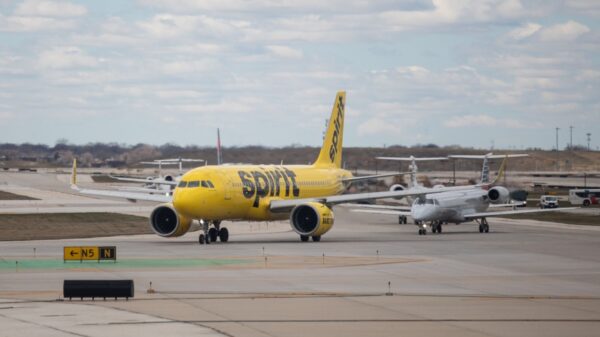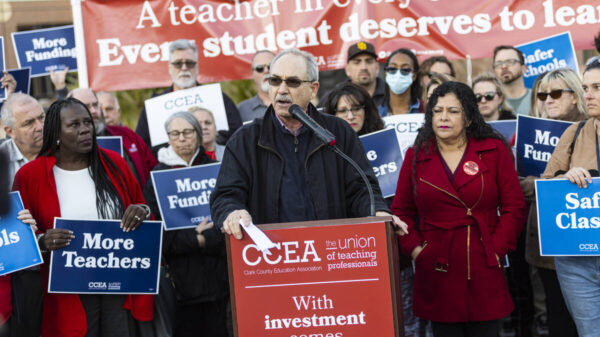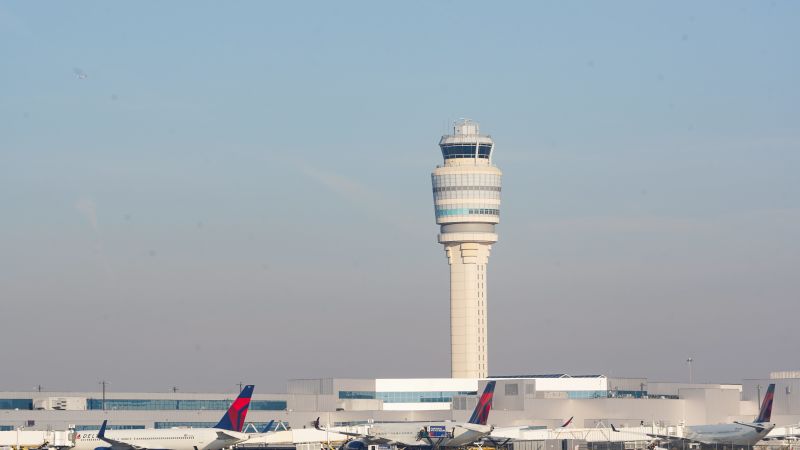UPDATE: As the government shutdown drags on, urgent concerns mount for 5,000 FAA workers and 14,000 air traffic controllers facing financial strain during the busy holiday travel season. Families are grappling with the emotional toll of uncertainty, with many federal employees unable to receive paychecks.
Amanda James, a dedicated FAA airway transportation systems specialist from Atlanta, reported her 11-year-old son’s heart-wrenching remark: “Mom, I don’t have to have a birthday party this year.” James, along with her husband, an air traffic controller, is deeply affected by the ongoing crisis. “That absolutely broke my heart,” she said, emphasizing the unnecessary burden her child feels during this turmoil.
As a potential resolution appears to be on the horizon, a small group of Senate Democrats voted with Republicans to approve a funding measure aimed at ending the longest shutdown in US history. The measure is now advancing to the House of Representatives. However, James remains skeptical. “I’ll believe it whenever I see it done,” she said.
In the meantime, the impact of the shutdown is palpable. A record number of air traffic controllers have taken unscheduled leave, leading to significant delays and the FAA slashing flights at 40 US airports. Transportation Secretary Sean Duffy has labeled the situation a “crisis within aviation,” highlighting the critical role of air traffic controllers in maintaining safety standards.
As families like the Jameses struggle, Duffy confirmed at a news conference that controllers would receive back pay within 24 to 48 hours after the government reopens, with 70% of their pay to be disbursed quickly. The remaining 30% will follow about a week later. However, the uncertainty looms large, as many workers are feeling the stress of potential financial instability.
“It’s not comforting,” said another anonymous controller, close to retirement and worried about how the ongoing shutdown could affect their new home construction for retirement. They expressed concerns about the unpredictable nature of the shutdown, stating, “The worries of when it was going to end… it didn’t look like there was any end in sight.”
James and her husband are also feeling the weight of the shutdown. Their plans to foster a high school-aged girl are on hold, and Amanda faces delays in necessary medical procedures due to financial constraints. “If the shutdown doesn’t wrap up this week, I’m going to talk to some salons to see what side work I can do,” she said, determined to provide for her family of four boys while navigating these challenges.
The emotional strain is compounded as many workers battle illness during flu season, impacting attendance and further disrupting air traffic control operations. Duffy noted that some may be protesting the shutdown by calling in sick, creating an even more complex situation as the holiday travel rush approaches.
President Donald Trump called for all controllers to “get back to work, NOW,” and suggested bonuses for those who remain on the job. However, the James family is unlikely to benefit, having taken necessary leave due to illness.
As the situation develops, the urgency for a resolution is palpable. Families like the Jameses are anxiously awaiting news on the funding measure, hoping for relief in time for the holidays. The emotional toll of the shutdown is evident, as children and parents are forced to confront financial uncertainty during what should be a joyful season.
The implications of this shutdown extend beyond just paychecks; they affect family dynamics, emotional well-being, and public safety. As officials work tirelessly to navigate this crisis, the nation watches closely for updates on the impending resolution.






































































